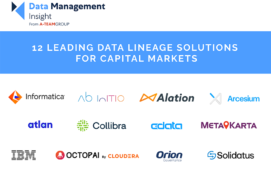The European Reference Data Users Group is moving to forge closer alliances with its counterparts in the US, including the Reference Data Coalition (Redac), as financial industry regulators impose tighter global controls.
Reuters’ Anthony Kirby, chairman of RDUG, told a conference at the recent FinExpo event that financial services firms need to examine reference data in order to have control over their businesses. “Regulators are becoming increasingly active. With Basel II, Capital Adequacy, the Investment Services Directive and other initiatives there is clearly a raft of things that firms must do to stay in business.”
The increased regulatory pressure means that the industry must take a global perspective. “We aren’t the only ones to see it this way,” he said, pointing to the recent G30 report. “It’s a moot point whether it has enough teeth, but there is a specific recommendation – number three – which states that firms must develop reference data standards with international collective action through the formation of representative industry-wide working groups,” he said. “It was precisely in anticipation of this G30 report that the Reference Data User Group was formed last summer.”
Kirby said that RDUG has had three meetings in Europe so far, with more planned (see Diary, page 11). RDUG has 41 member firms in Europe already, while the US arm has nearly 20. In Europe, the buy-side is in the majority, he said, adding that RDUG is currently forming a new executive committee, of which half will be drawn from the buy-side.
The group is also in discussion with the Securities and Exchange Commission regarding the reach of the US Sarbane-Oxley Act, which Kirby said “will be significant over the next five years”.
“Typically, this is boring stuff. You don’t go to a party saying you’re a reference data expert. That said, it is the bread and butter of the business: if you don’t specify the data, you won’t have a business in the long term, especially as far as the regulators are concerned.”
Subscribe to our newsletter




